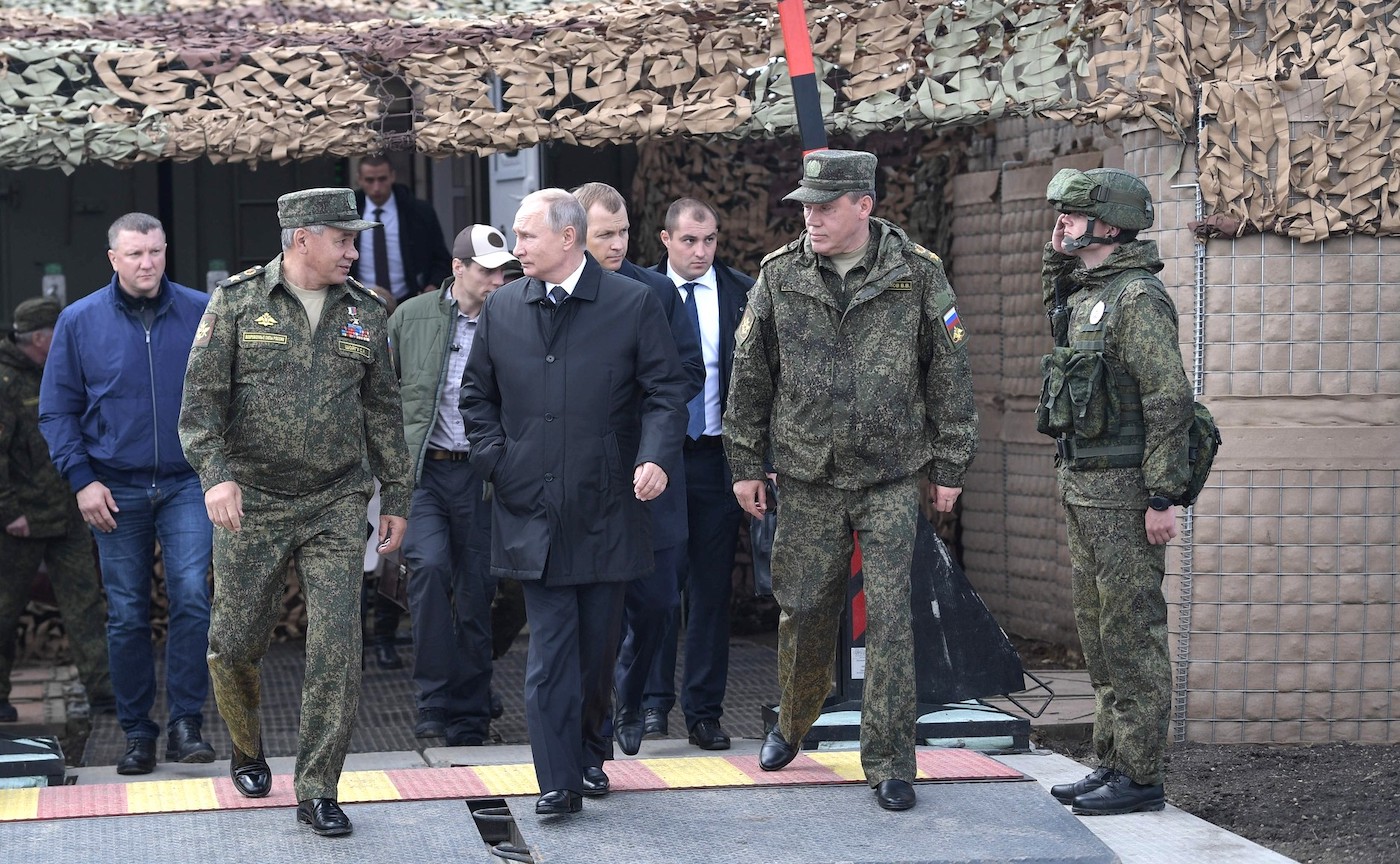In August of 2021 fully 48% of Russians believed that Russia should intervene in eastern Ukraine. It must be noted that the terminology – “intervene” – of the survey does not reflect the reality of Russia’s current activity in Ukraine. While the Kremlin vehemently denies any participation of its troops in the attack on Ukrainian forces, a court in Rostov let the cat slip out of the bag. In December it confirmed that food was being supplied to Russian units fighting in Donetsk and Lugansk in Ukraine. It’s reaffirmed in court documents.
The most recent deployment of troops alongside Ukraine’s border is the second one of 2021. Most observers see this as much more than an expression of nostalgia for the powerful Soviet past. They see the saber-rattling as a deliberate strategy for Putin.
The Kremlin insists that the West is to blame for the present crisis and this narrative has captured a receptive audience in Russia.
In Russia, many are convinced that conflict is inevitable, even justified. Putin has been able to control the discourse as to why a show of strength is necessary: NATO has expanded eastward to Russia’s border and has been grooming Ukraine for NATO membership. This is a redline that cannot be crossed which Russians see as a reasonable position.
However, the Russian menacing posture is also driven by Putin’s insatiable need to remain powerful and regain popularity. The invasion and annexation of Crimea in 2014 boosted popular support for him domestically. It was viewed as Putin’s triumphal seizure. Although the takeover was universally condemned in the West, the radical left and some far-right groupings in Europe (a few also in the U.S. and Canada) found the Russian action to be warranted with some even praising it.
The boost in his popularity for appropriating Crimea has surely been one of Putin’s current motivations. He’s set on maintaining his image as a strong leader, not intimidated by any Western encroachments on “his territory”, maintaining Russia as a world power which is not to be underestimated.
Russia has denied any intention of deplyoment for an invasion. While Levada’s polling showed that another two fifths of Russians believe war is unlikely and 15% totally ruled out any war, exactly half of the respondents still accused the USA and NATO as the instigators of the current confrontation. Sixteen percent pinned the blame on Ukraine for heightened tensions. Only four percent blamed Russia.
Do sanctions have any effect on the attitudes of Russians? In 2017, fully 68% said they are not concerned about any anti-Russian sanctions. This was a 10% increase from the previous year. The sanctions, extended to July of 2018 by the EU also elicited an increase to 60% of respondents who expressed a negative view of the EU and the USA.
While the popularity of Putin has had its highs and lows, most Russians still adhere to the government version on international issues. (Opinion and attitude polling in Russia can be tricky. Western researchers are convinced that many Russians, recalling the possible consequences of being seen as anti-Soviet, give only pro-kremlin responses.) But observers are convinced that Russians in general are not enthusiastic about war.
What about Russia’s military operations in Chechenia, South Ossetia, Crimea, now in Ukraine and Syria? They were not seen as full-blown, large-scale conflicts. The 2014 assault into Ukraine’s Donbas, after the quick seizure of Crimea, was generally applauded by Russians. But as it became obvious that the Donbas conflict was deadly and ruinous, the public soon adopted the Kremlin’s defensive justification: Russia is not to blame. Kyiv and Washington are the cause of the destruction and loss of life. And of course, as Moscow insists, it’s not really a war.
Despite the Kremlin’s ramped-up propaganda, fully 66% of Russians aged between 18 and 24 feel positively about Ukraine. Western observers see the relative unwillingness of the younger generation to fight. War is a vocation for young people and conscripts, most of whom don’t want to be mobilized. Can Putin’s full-blown rhetoric overcome this?
Laas Leivat, Toronto




